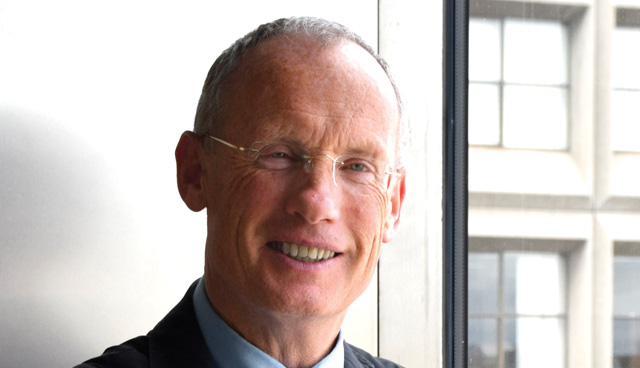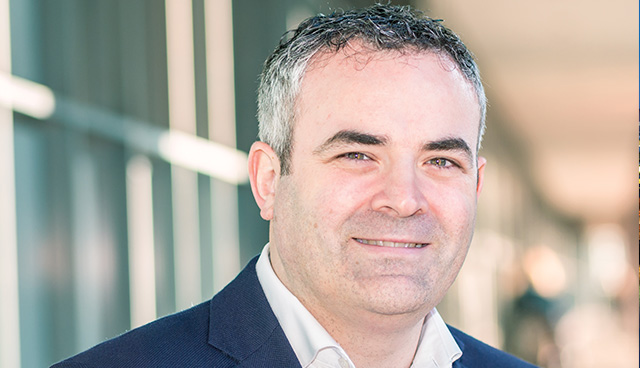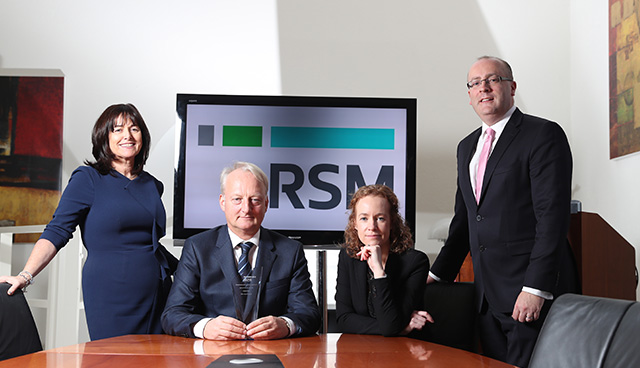Cranfield University’s David Grayson
 Businesses must incorporate sustainability into their practices in order to limit demand on future resources and increase profitability, according to Cranfield University’s David Grayson. He spoke to Stephen Dineen during a recent visit to Dublin.
Businesses must incorporate sustainability into their practices in order to limit demand on future resources and increase profitability, according to Cranfield University’s David Grayson. He spoke to Stephen Dineen during a recent visit to Dublin.
Corporate responsibility (CR) is all the more relevant at a time of economic difficulty and when the European economy is trying to improve competitiveness, according to Director of the University of Cranfield’s Doughty Centre for Corporate Responsibility David Grayson.
Speaking to eolas after addressing a business audience in Dublin, Grayson says that businesses should “use every tool at [its] disposal” to ensure better management of its environmental, social and economic impacts. This will result in improved reputation and reduced costs, he insists.
“I think it’s a fallacy to assume that this is about things which are going to cost you more money because many of the things that I’m talking about are things which will help you to save money and make money,” he claims.
In 2011, Grayson and Business in the Community UK published a business case for responsible business. He points to “seven key business benefits” that companies and academic literature has suggested are achievable through the better management of environmental, social and economic impacts.
These are:
• improved brand value and reputation;
• motivated, productive, loyal employees and the ability to attract and retain these employees;
• more effective operations and higher levels of efficiency;
• improved risk management;
• better financial performance;
• organisational growth; and
• business opportunity.
Better management of a company’s impacts is not about “corporate philanthropy or community involvement or things of that disconnected nature to the business,” Grayson explained, but about “core business operations.”
These benefits can arise from engaging with employees, customers, suppliers, communities and civil society. Businesses that understand how management can impact on its competitive position, and that have “corporate leadership engaged on this”, are discovering “the new business opportunities and the business benefits.”
Grayson cites the 2011 MIT Sloan Management Review’s Sustainability and Innovation Global Executive study which found that 31 per cent of 2,874 corporate leaders said that they are profiting from sustainable activities.
Embracing CR
Global socio-demographic and environmental pressures make the CR case compelling, according to Grayson. These include a rising and ageing population, increased urbanisation, an expanding middle class (predicted to rise from 1.7 billion people in 2010 to 3.6 billion in 2030, according to Accenture) and greater pressures on energy and water supplies.
The world population has increased from 2.78 billion in 1955 to 6.8 billion in 2009. In 2050, it is projected to reach 9.3 billion according to the UN’s medium fertility variant forecast. Grayson refers to the ‘perfect storm’ envisaged by the UK Government’s Chief Scientific Adviser Sir John Beddington in 2009 whereby demands for food and energy will increase by 50 per cent and water by
30 per cent by 2030. This scenario would lead to public unrest, cross-border conflicts and mass migration. In order to avoid this, companies have a responsibility for their impacts on society, Grayson emphasises.
Companies go through five stages of maturity regarding CR, according to Grayson. Firstly, they deny social, environmental and economic impacts have anything to do with them. They then become compliers with the law. As international companies have to comply with different jurisdictions, costs rise and maintaining reputation becomes harder. Companies then move to mitigate risks. Some then seek commercially attractive business opportunities from this i.e. producing profitable products and services that address societal needs and wants.
Finally, companies become ‘civil corporations’, collaborating with organisations such as NGOs, civil society, academia, international institutions and even competitors. They “start to share some of their knowledge, expertise and technologies because the challenges are so great that unless they do that they won’t be able to make progress fast enough.”
Despite the global nature of many socio-economic problems, governments should not force businesses to embrace CR, he believes. “I think the people who best understand how to make business better are the people in business, and critically, the bright young people who are now starting out on their business careers.” He believes that society does, however, need more action by government in “putting in place effective governance mechanisms at both national and international level.”
An intervention by government that Grayson personally favours is the legislation introduced by the Danish Government in 2009. It requires the largest companies, listed companies, investors and certain state-owned companies to include corporate social responsibility policies and actions in annual reports. If a business covered by the requirement has no policy, this must be stated in the report.
Grayson worked in marketing management for Procter & Gamble before becoming a social entrepreneur, then an academic in 2007. For him, business schools will have to do “the blue sky thinking about what the new business models are for sustainable inclusive capitalism” if they are going to “remain relevant.”
“I do passionately believe in capitalism being a default mode of human behaviour,” he told delegates. “It’s not necessarily the same kind of model of capitalism as we currently have.”
A big breakthrough will come, he believes, with new developments of the ‘civil economy’ (where corporate power is wielded by citizen investors). Grayson wants to see “effective mechanisms for each of us as part-owners of businesses,” whereby people, such as those who buy pension plans, become more confident with and communicative towards business.





